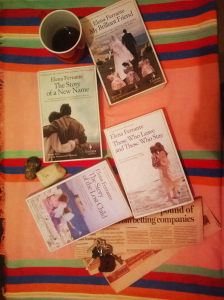
Vincent van Gogh, self-portrait
All publicity is good publicity. What prompted me to reuse this fabulously cliché phrase is the controversy in France over a book with 65 sketches allegedly by Vincent van Gogh. Publisher Editions du Seuil claims that they are previously unknown drawings, while the Van Gogh Museum in Amsterdam claims they are fake. By the sound of it, it is all a lovely mess.
One can imagine that publishers are careful when taking on an art book, especially when it makes a claim of containing previously “lost” sketches and notes. Editions du Seuil is not revealing where this sketchbook came from, but they did get two art historians, and internationally recognised authorities on van Gogh, to write the foreword and text: Bogomila Welsh-Ovcharov and Ronald Pickvance. Nevertheless, experts have been fooled before.
It’s hard not to think of the great Vermeer forger Han van Meegeren, who was only found out because he could not say where the Vermeer he had sold to Hermann Göring originally came from. Perhaps the best part of the story is when van Meegeren’s very first “Vermeer” got the most eminent authority on Dutch baroque art to write that it was a “masterpiece”, and a “wonderful moment in the life of a lover of art”. It is possible that Welsh-Ovcharov and Pickvance had similar revelations.

Hermann Göring’s “Vermeer”. Photo: Croes, Rob C., Fotocollectie Anefo, Nationaal Archief NL.
At the moment, according to The Bookseller, there is still uncertainty as to who is right, but customers has so far preferred to err on the side of caution. Making this the sort of publicity one should like to avoid, unless, it can be publicly proved that the sketches are authentic.
Until it all is resolved I would like to ponder the words of Theodore Rousseau: “We should all realise that we can only talk about the bad forgeries, the ones that have been detected; the good ones are still hanging on the walls.” And perhaps, standing on our bookshelves.
Vincent van Gogh: The Lost Arles Sketchbook can be bought here for $85. If you think that is too much the Book Depository has it for £35.75. Grab a bargain!
 When, on Sunday 2nd October, news started trickling in about the Italian author Elena Ferrante’s
When, on Sunday 2nd October, news started trickling in about the Italian author Elena Ferrante’s